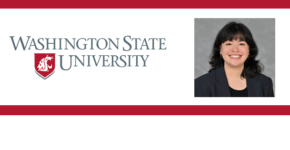 Would you let your car drive for you?
Would you let your car drive for you?
Kathryn Robinson-Tay, PhD student in science and risk communication at Washington State University, determines what you might stop you.
Kathryn Robinson-Tay is a third-year PhD student studying science and risk communication in the Edward R. Murrow College of Communication. Her research focuses primarily on how institutional and interpersonal trust affect risk perceptions of emerging technologies, especially those on which people might not have a strong foundation of knowledge. This work has focused particularly on self-driving cars and other forms of artificial intelligence. Her research interests also include science and risk communication with rural populations, especially on topics like climate change, energy policy, and environmental health risks. Within these research interests, Kathryn is interested in centering community understanding and sense-making through respectful dialogue, critiquing knowledge deficit assumptions and challenging traditional hegemonic science communication practices. Teaching is Kathryn’s main passion, and classes she has taught include Public Speaking at Washington State University. She has also taught an array of introductory classes and advanced seminars in political science at her previous university. Kathryn has presented at research conferences such as the 2022 Western Political Science Annual Conference and the 2022 National Communication Association Annual Conference. Kathryn holds a B.A. and M.A. degrees in Political Science from the University of Wyoming.
Trust and Autonomous Vehicle Acceptance
It will likely take more than knowledge to overcome negative risk perceptions of fully autonomous vehicles. According to our research, it will take trust – specifically trust in the vehicle’s reliability and performance.
Autonomous vehicles, if widely adopted, could make road travel dramatically safer. Some researchers predict autonomous vehicles will reduce accidents by 90 percent through the elimination of human error. But for that potential to be realized, people have to be willing to buy them. And many Americans, about 44% according to a 2022 Pew Research poll, have negative perceptions of them.
It is commonly thought that simply teaching people about a technology will be enough to persuade them to accept it. But other research has shown that knowledge alone is not enough to sway people’s attitudes about complex scientific or technological topics, like climate change or genetic engineering. Because of this, we wanted to understand how knowledge and trust might relate to people’s risk perceptions around autonomous vehicles.
To do this, we conducted a representative, cross-sectional survey of 323 U.S. adults. We found no direct relationship between the participants’ knowledge and their risk perceptions of autonomous vehicles. Instead, knowledge was only related to risk perceptions through the mediation of trust.
Our findings point to the need to build that trust with the public if fully autonomous vehicles are to ever take to the roads. We recommend that proponents should do their best to honestly communicate their benefits, and their risks, in an effort to increase both knowledge and trust. We also recommend increasing opportunities for people to interact with autonomous vehicles, as experience can show people how the technology functions and thereby reduce uncertainty. With these recommendations, we hope people can better understand the technology and make the best choice for themselves.
